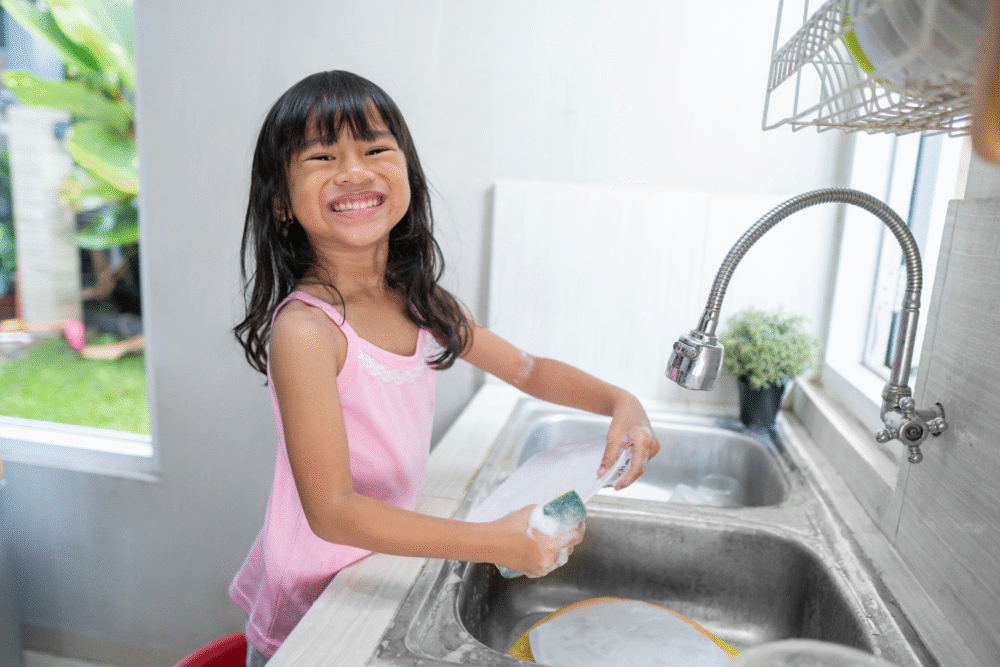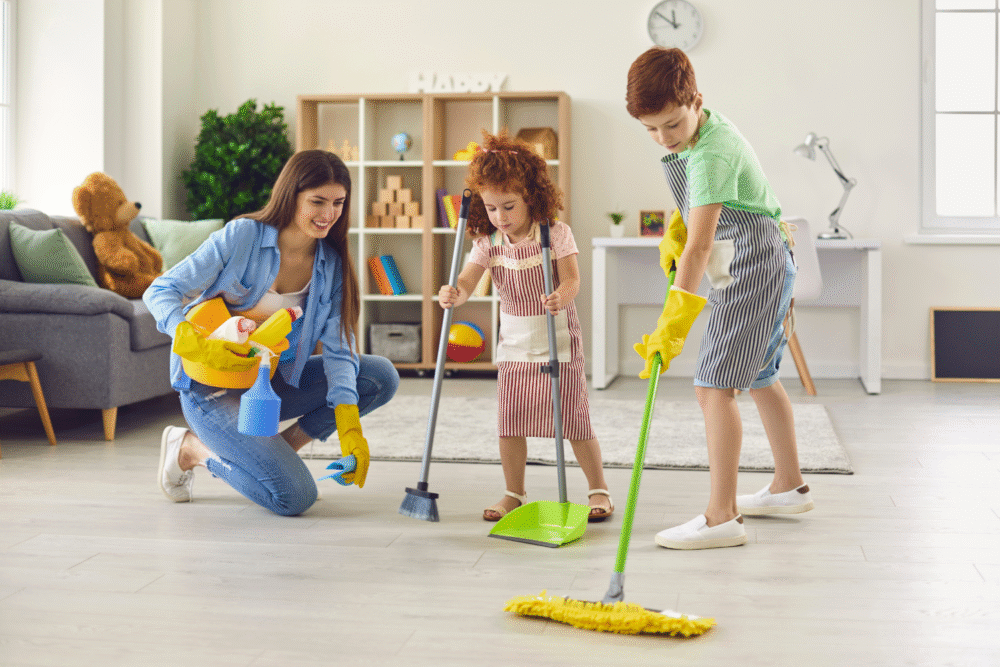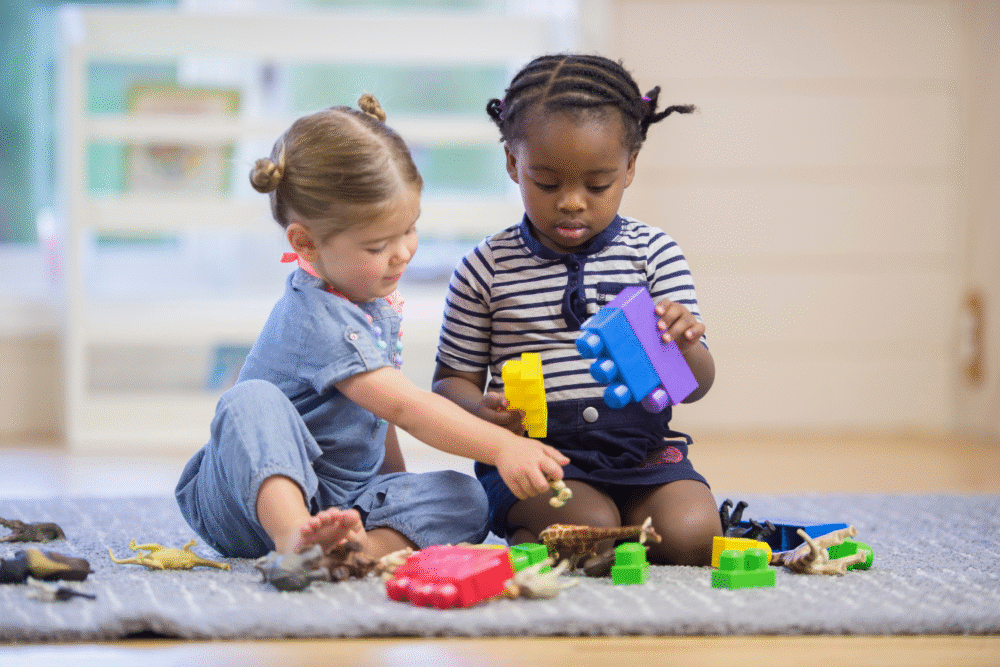Timeless household guidelines that promote respect, responsibility, and harmony at home.

Many traditional house rules remain valuable for modern families, offering guidance on respect, discipline, and communication. These principles help maintain order, foster positive interactions, and support shared responsibilities within the home. By blending consistency with flexibility, classic rules can adapt to today’s lifestyles while preserving essential family values and routines that benefit everyone involved.
1. Always clean up your dishes immediately after eating.

The rule of cleaning up dishes promptly after a meal prevents clutter and keeps the kitchen hygienic. It sets a standard for personal responsibility and accountability in the household. By encouraging this habit, families maintain a seamless and pleasant living environment.
Moreover, consistently following this rule ensures reduced pest attraction and an aesthetically pleasing kitchen area. It instills a sense of order and promotes a communal understanding of shared spaces. This collective approach enables a harmonious household where each member contributes to overall cleanliness.
2. Make your bed every morning to start the day right.

Making the bed each morning cultivates a sense of accomplishment and discipline. This simple act sets a productive tone for the day, reinforcing the value of routine and preparedness. It offers a small psychological boost by transforming personal space into an organized area.
This practice underscores the importance of starting the day with a sense of purpose. Coupled with consistency, it reinforces self-worth and responsibility. Family members who follow this rule often find greater motivation to keep other areas neat, creating a tidy home atmosphere.
3. Respect others’ privacy by knocking before entering a room.

Respecting others’ privacy by knocking before entering a room highlights the importance of personal boundaries. This rule teaches respect and consideration within a household, fostering an environment of mutual trust. It helps children understand consent and personal space early on.
Maintaining this practice validates everyone’s need for solitude and privacy, promoting healthier interpersonal relationships. In a household setting, respecting closed doors also prevents misunderstandings and conflicts. It strengthens communication by acknowledging each person’s autonomy and individuality, enhancing familial bonds.
4. Turn off lights and electronics when leaving a room.

Turning off lights and electronics when leaving a room conserves energy and reduces utility costs. This habit promotes environmental responsibility and resource awareness within the home. Such actions reflect an understanding of the broader impact of daily choices.
In addition to conserving energy, this rule instills sustainable practices that extend beyond the home. As the habit becomes ingrained, it encourages family members to consider ecological impacts in other areas of life. This mindful approach benefits both the household budget and the environment.
5. Keep common areas tidy to create a welcoming space.

Keeping common areas tidy fosters a welcoming and relaxed atmosphere for the household. This rule encourages collective effort towards cleanliness and organization, benefiting everyone. By maintaining order, families minimize stress and create spaces that are conducive to relaxation and interaction.
The practice instills teamwork and accountability, as each member contributes to preserving a shared environment. A tidy common space can enhance socialization and invite spontaneous family gatherings. It symbolizes respect for everyone’s comfort and promotes positive interactions.
6. Say please and thank you to show basic manners.

Using ‘please’ and ‘thank you’ in everyday exchanges illustrates basic manners and fosters a respectful atmosphere. This practice instills courtesy and gratitude, which strengthens familial bonds and enhances communication. These small verbal gestures affirm the value of mutual respect within the home.
Manners are foundational to expressing appreciation and maintaining harmonious relationships. Instilling these habits in children lays a groundwork for positive social interactions outside the home. Consistent use of polite language cultivates a culture of kindness and empathy.
7. Communicate openly about household chores and responsibilities.

Open communication about chores ensures clarity and shared understanding among family members. Discussing responsibilities prevents misunderstandings and ensures tasks are divided fairly. This transparent approach encourages accountability and fosters a cooperative spirit in managing household duties.
When each member is aware of their responsibilities, it supports a smooth-functioning home. An environment of open dialogue reduces tension and promotes efficient task completion. This practice nurtures teamwork, equity, and a sense of accomplishment from contributing positively.
8. Avoid running inside the house to prevent accidents.

Prohibiting running indoors minimizes the risk of accidents and maintains a safe home environment. This rule emphasizes carefulness and awareness of surroundings, protecting household members from potential injuries. It highlights the importance of behaving safely within shared spaces.
Enforcing this rule consistently encourages children and adults alike to understand the value of safety. A calm indoor atmosphere prevents disruptions and supports a secure environment. This practice emphasizes the importance of mindful movement, improving well-being for everyone.
9. Limit screen time to encourage face-to-face interaction.

Limiting screen time encourages more face-to-face interactions and fosters deeper family connections. This rule promotes healthier communication habits and encourages active engagement in the home. Time away from screens creates opportunities for shared activities and meaningful conversations.
By reducing screen dependency, families can cultivate richer relationships and invest time in mutual interests. Balancing screen use with personal interactions supports mental and emotional well-being. This balance helps prevent technology from overshadowing familial connections.
10. Share household supplies fairly among all family members.

Sharing household supplies fairly ensures that each family member has equitable access to resources. This rule promotes a sense of fairness and eliminates potential conflicts over shared goods. It reinforces the idea of considering others’ needs and managing communal resources effectively.
This practice teaches sharing, patience, and respect for each other’s requirements. Fair distribution of supplies supports a caring and considerate home environment. It enhances cooperation and highlights the importance of generosity among family members.
11. Put away toys and belongings after using them.

Storing toys and belongings after use maintains a neat and organized home. This habit prevents clutter, reduces stress, and fosters an atmosphere conducive to relaxation and creativity. It encourages personal responsibility and respect for shared spaces.
By tidying up regularly, individuals uphold an orderly environment that benefits everyone. An organized home minimizes chaos and supports efficient use of space. This ongoing practice enforces accountability and instills pride in maintaining a clean and welcoming home.
12. Listen respectfully when someone else is speaking in the home.

Listening respectfully when someone else speaks ensures understanding and strengthens relationships within the household. This rule nurtures a culture of open dialogue, fostering empathy and consideration among family members. It encourages active engagement and the appreciation of diverse perspectives.
Promoting respectful listening also prevents miscommunications and builds trust. Recognizing and valuing each person’s voice enhances connectedness and teamwork. Through attentive listening, family interactions become more meaningful and supportive, reinforcing positive communication habits.
